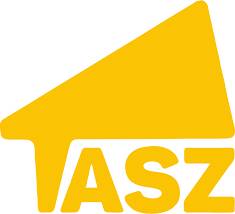Search form
Number of partners: 947
Sort by:
-
Humanitarian Aid and Development Organization
HAD
Humanitarian Aid and Development Organization ( HAD ) is a non governmental non profitable organization established in Sudan in 1999 . HAD aspires to provide aid far from being influenced by Governments or political impacts nor segregate on race , religion , gender or color bases . HAD endeavors to provide humanitarian aid aims at making development an attainable target . HAD’s utmost target is human being as he\she is the most important element in the process of development . HAD Operating Areas ; North Darfur State South Kurdufan State South Sudan Blue Nile State Khartoum State North and River Nile States. Field of Work Social developments programs Education Health Capacity building Relief Women & Children and Water projects -

Humanitarian Center for Integration and Tolerance
HCIT
Humanitarian Center for Integration and Tolerance -

Humanitarian Development Consortium
HDC
Established in 2008, Humanitarian and Development Consortium (HDC) is a national NGO delivering high-quality programming to beneficiaries across South Sudan in four core areas, outlined below. HDC programming is directed at refugees, returnees, vulnerable host communities, and internally displaced persons (IDPs) in South Sudan. The organization strives to facilitate people-centered development programs, supporting crisis-intervention as well as livelihoods-focused initiatives that create opportunities for marginalized and disadvantaged people. -

Humanity & Inclusion
HI
HI is an independent and impartial aid organisation working in situations of poverty and exclusion, conflict and disaster. We work alongside people with disabilities and vulnerable populations, taking action and bearing witness in order to respond to their essential needs, improve their living conditions and promote respect for their dignity and fundamental rights. On January 24th 2018, the global Handicap International network became Humanity & Inclusion. This network is composed of a Federation which implements our programmes in the field in around sixty countries and of eight national associations. These programmes or national associations are known as "Handicap International" or "Humanity & Inclusion", depending on the country. In Jordan, HI is providing emergency relief to the most vulnerable persons within the community (governorates of Amman, Jarash , Ajloun, Mafraq, Irbid and Zarqa) and camps (Za’atari and Azraq) -

Hungarian Baptist Aid
HBAid
Hungarian Baptist Aid (HBAid) was registered in 1996. Since its inception, the goal of HBAid has been to help people in need within and outside Hungary. HBAid provides regular relief assistance, by providing physical humanitarian aid as well as emotional and psychological support. It implements these programs in 18 countries around the world for needy and socially marginalized people in order to ease their difficult situation and give them a chance to have a more humane life. Our purpose is to meet the emotional, psychological and physical needs of the destitute whether this is on an occasional or regularbasis; within or outside the country; regardless of the person’s origin, nationality, religion, or race. -

Hungarian Civil Liberties Union
HCLU
The Hungarian Civil Liberties Union (HCLU, Hungarian: Társaság a Szabadságjogokért, abbreviated TASZ) is a Hungarian human rights NGO. Since its foundation in 1994, it has been working for everybody being informed about their fundamental human rights and empowered to enforce it against the undue interference by those in position of public power. -

Hungarian EMDR Association
EMDR
The Hungarian EMDR Association is a professional community of therapeutic professionals whose common goal is to ensure the highest quality application of EMDR therapy in both clinical practice and research. Our association strives to provide satisfactory and accurate information about the EMDR therapy method to all interested parties and makes available a list of EMDR practitioners trained and recognized by it.


